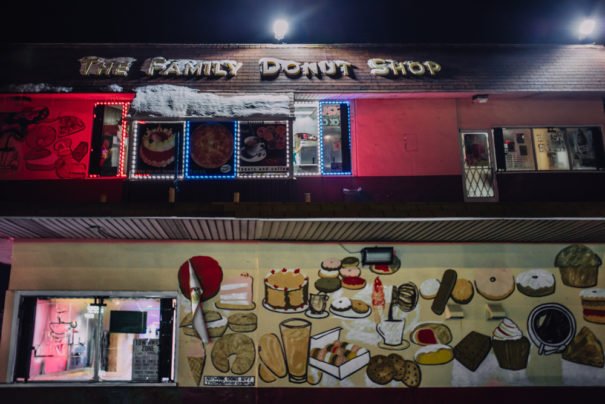
We Are the Free, the Proud, the Donut Eaters of Detroit
Kefir in Hamtramck
In July, I went to Detroit to report a story on the food businesses at the heart of that city’s vibrant Arab community.
The story was important to me. I’d returned to the U.S. a few months earlier after nearly five years living in India, a country where Muslims—180 million of them, about 14 percent of the national population—are consistently treated as second-class citizens, more so since 2014 when the Hindu Nationalist party swept the country’s elections in the largest democratic event in history. I returned home in the midst of this hideous election to a climate of Islamophobia in the U.S. that was discomfiting in its familiarity.
I wanted to do something, so, being a food writer, I pitched a story on the Arab-American food businesses in Dearborn, Michigan (essentially a suburb of Detroit) and the crucial role they’d played not just in resuscitating that city’s commercial life but also in providing jobs and community for immigrants and refugees from a region that the U.S. has played such a singular role in destabilizing.
While in Dearborn, I heard about another small city called Hamtramck, a tiny municipality within the sprawl of northern Detroit, which, earlier that year, became the first American city to elect a majority-Muslim city council. “News” outlets like Breitbart predictably cried apocalypse with the smug horror of soothsayers whose prophecies have come to pass just a little sooner than expected. Locals, as far as I can tell, barely batted an eye.
Though once a predominantly Polish enclave, Hamtramck has, in recent years, become a heterogeneous mix of Catholic Poles, Bangladeshis, and Yemenis. One acquaintance described it to me as “America’s Model City.” Another told me that I had to go one morning for donuts and kefir—a fermented milk drink—at a place called The Family Donut Shop on Conant Street.
So the following Sunday I drove out to Hamtramck. Conant Street, the main commercial drag, isn’t a particularly pretty place, just a long stretch of asphalt lined with one-story buildings in brick or faded siding, each girded with its own little parking lot. There are Bengali grocers and Yemeni Café’s and Polish bars. Signs are written in four languages with three different scripts. A shop called Hookah Town sits less than a block from Our Lady Queen of Apostles Church and the John J Skupny Funeral Home. A few yards from there, in a low-slung building painted a dim shade of peach, was the Family Donut Shop.
I walked in and took a seat on a chromium stool. The walls were covered, floor to ceiling, in faux wood. It might have been 1970 in there. At one end of the bar, a group of older Bangladeshi gentlemen stood chatting happily over a basket of donuts (in South Asia, Bengalis are known, above all, for loving sweets and long philosophical chats). On the stool to my left, a young Yemeni guy pulled apart a wedge of borek, a type of cheese-filled flatbread or pastry common to the Arab and Turkic worlds, while sipping weak American coffee from a Styrofoam cup. Working the counter was a young woman in a pretty, robin’s-egg blue hijab, who asked what I wanted, with a broad smile and broader vowels.
I asked for a cinnamon swirl donut and a cup of kefir. “You want what?” she asked, the smile fading a little, eyebrow cocked. I repeated my order, less confidently this time, explaining what I was looking for and noting, for the first time, that it was nowhere to be found on the menu bolted to the wall. The Yemeni guy next to me chuckled quietly. “So you mean… yogurt?” she asked. I nodded and smiled and she looked at me like I was off-balance but brought over a cup anyway, cold and sour and surprisingly good with the too-sweet donut. It is, after all, a free country.